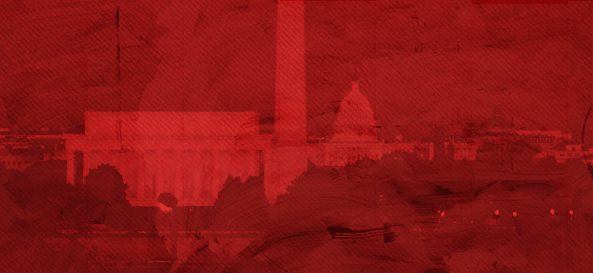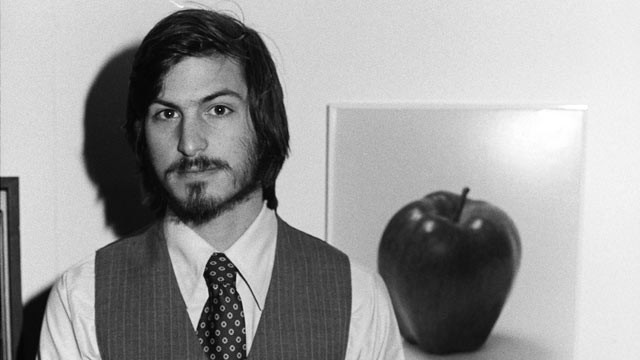
TONY CAMPOLO: Shane, I have a question to ask that may make you squirm a little bit. From hearing you talk and reading your books, you often seem to suggest that Christians not participate in the political process, and that political activism is somewhat futile. Have I understood your position correctly?
SHANE CLAIBORNE: The question for me is not are we political, but how are we political? We need to be politically engaged, but peculiar in how we engage. Jesus and the early Christians had a marvelous political imagination. They turned all the presumptions and ideas of power and blessing upside down.
The early Christians felt a deep collision with the empire in which they lived, and with politics as usual. They carelessly crossed party lines and built subversive friendships. And we should do that too. To be nonpartisan doesn’t mean we’re nonpolitical. We should refuse to get sucked into political camps and insist on pulling the best out of all of them. That’s what Jesus did—challenge the worst of each camp and pull out the best of each. That’s why we see Essenes, Zealots, Herodians, Pharisees, and Sadducees all following Jesus and even joining his movement. But they had to become new creations. They had to let go of some things. Jesus challenged the tax-collecting system of Rome and the sword of the Zealots.
So to answer the question, I engage with local politics because it affects people I love. And I engage in national politics because it affects people I love.
Governments can do lots of things, but there are a lot of things they cannot do. A government can pass good laws, but no law can change a human heart. Only God can do that. A government can provide good housing, but folks can have a house without having a home. We can keep people breathing with good health care, but they still may not really be alive. The work of community, love, reconciliation, restoration is the work we cannot leave up to politicians. This is the work we are all called to do. We can’t wait on politicians to change the world. We can’t wait on governments to legislate love. And we don’t let policies define how we treat people; how we treat people shapes our policies.
TONY CAMPOLO: So you are not calling for noninvolvement in politics. Instead, you are warning Christians not to put their trust totally in political powers. You are calling them to exercise an ongoing involvement with the political process, to constantly speak truth to power in those places where power seems to be asserting itself in ways that are contrary to the will of God.
SHANE CLAIBORNE: Our goal is to seek first the kingdom of God. What would it look like if Jesus were in charge of my block, of our city, of our country, our world? That’s what we get to imagine when we dream dreams of the kingdom on earth. And we get some pretty good glimpses of what that looks like from the Gospels: the poor are blessed and the rich are sent away empty, the mighty are cast from their thrones, the lowly are lifted, the peacemakers and the meek are blessed, and the proud-hearted are scattered (Luke 1:51–53).
And we’ll work with anyone who wants to work with us as we try to get to the kingdom—whether that looks like reducing poverty or eliminating abortions, doing something meaningful for the environment, changing bad laws, or trying to make sure the most vulnerable are cared for.
But we do have a peculiar way in which we hope. When I see posters with Barack Obama’s name with the word hope under it, I cringe. We are setting ourselves up for disappointment if our hope is built on anything less than Jesus.
So when it comes to voting, I look at it not as a place to put our hope but a battle with the principalities and powers of this world. Voting is damage control. We try to decrease the amount of damage being done by those powers. And for the Christian, voting is not something we do every four years. We vote every day. We vote by how we spend money and what causes we support. We vote by how much gas we use and what products we buy. We align ourselves with things all the time. We pledge allegiance every day with our lives. The question is, Do those things line up with the upside-down kingdom of our God—where the poor, the meek, the merciful, the peacemakers are declared “blessed”?
TONY CAMPOLO: We have talked about taxes, about funding the empire, and how people often quote to me the verse that gives Jesus’ thoughts on whether we should pay. In that passage of Scripture, you recall, Jesus requested a coin and then asked, “Whose portrait is this? And whose inscription?” When the answer given was that it was “Caesar’s,” he said, “Give to Caesar what is Caesar’s and unto God what is God’s” (Mark 12:13–17). Tell me how you interpret that in the context of the kingdom of God.
SHANE CLAIBORNE: There are two occasions when the authorities interrogated Jesus regarding taxes. On one occasion, he borrowed a coin. (The fact that he did not have one is significant.) He asked the interrogators whose image was on that coin, and then said, “Give to Caesar what is Caesar’s” (Matthew 22:21). On the other occasion, he instructed Peter to go catch a fish, telling him the fish would have a four-drachma coin in its mouth for the tax collectors (Matthew 17:27). (Try that on Tax Day!)
Both of these stories are usually interpreted as proof that Christians must simply submit to the authorities and give Caesar whatever he asks of us (notably with little regard of whether Caesar is a dictator or elected, evil or benevolent). But it seems Jesus has got something more clever up his sleeve.
In both instances, Jesus is asked a straightforward, yes-or-no question: “Do you pay taxes?” In both cases, his response subverts the question, going deeper to challenge its basic assumptions. He doesn’t dodge the questions; he transcends them. He forces his listeners, taxpayers and tax collectors, to ponder. To what, exactly, does Caesar have a right? What has Caesar’s image, and what has God’s image? What is Caesar’s, and what is God’s?
I am particularly fond of the fish stunt. It is as though Jesus is winking at Caesar, saying, “Oh, Caesar can have his coins . . . I made the fish.” Caesar can have his silly metals; after all he can keep making more of them even if they aren’t worth a dime. But coins have no life in them. Human life is branded with the image of God, and Caesar does not own that. In a nation where such a high percentage of taxes go to military and hence ultimately to death-dealing pursuits, this teaching should give every tax-paying Christian long and troubled pause. Once we’ve given to God what is God’s, there isn’t a lot left over for Caesar.
TONY CAMPOLO: Jesus seems to be saying that though Caesar’s image is on the coin, you have to decide whether it belongs to Caesar or whether it belongs to God. Jesus is asking, “Are you going to use your money the way Caesar wants it to be used, or do you want it to be used the way God wants it to be used?” He’s throwing the decision back on those religious leaders who are trying to trap him with their questions. Each of them will have to decide whether the money in question ultimately belongs to Caesar or should it be used the way God wants it to be used. When there is conflict between what God requires and the demands of the government, each of us has an important decision to make concerning taxes.
We have talked a little bit about taxes and military spending. Now here is a related question that I am asked regularly: “Where in the Bible can you find any justification for the government taxing us and then using our money to help poor people?” My questioners go on to say, “I agree with you that Jesus calls upon us to respond to the needs of the poor, but isn’t this the task of the church? It doesn’t tell me in the Bible that it’s the task of the government to take care of poor people.” Of course, they don’t mention the fact that the church isn’t doing it. What’s more, they don’t acknowledge that the needs of the poor are so massive that the church doesn’t have the financial resources to meet those needs.
While I can see how the government has, at times, wasted taxpayers’ money and I can admit that too often its programs are ineffective, I also can see the good that government does. My task as a citizen is to get the government to do more good and less inefficient and wasteful work. There is no question in my mind that God is bigger than the church and that the church will be used in God’s endeavors, but not only the church. In God’s work in the world, all principalities, all powers, all dominions, and all thrones will be used (Ephesians 1:19–23).
If you go to the book of Colossians, you will find that all the principalities and powers were created by God and for God’s purposes in the world (Colossians 1:16–17). It is the task of government, which is one of those principalities and powers, to do the will of God every bit as much as it is the task of the institutional church to do the will of God. Insofar as the church fails to do the will of God, I am called upon to help it discover and to do the will of God; and I am called upon to help the government to do the same. Not only am I supposed to challenge the government to do God’s will but I am to do the same for other powers. Included in these principalities and powers are corporate structures such as labor unions, General Motors, Ford, IBM, Apple, and Walmart. I have to ask all these suprahuman entities if they are functioning in accord with the will of God, because they are imposing themselves on people and influencing their everyday lives.
If a government that is able to deliver massive numbers of people in Africa from poverty fails to do so, then Christians should challenge that government to do the will of God, especially when the government of our own country has taken 40 percent of the world’s resources in order to make possible our affluent, middle-class lifestyle, despite the fact that we make up only 5 percent of the world’s population.
Consider the AIDS crisis in Africa, which President George W. Bush addressed with a commitment of $19 billion. Our people should lend support to such an effort. This is not a Democratic thing, nor is it a Republican thing. It’s the thing that God calls the government to do in order to bring good to all humanity. Governments are created, says Romans 13, to do good for their citizens, and we have the right to resist governments when they don’t do what is good for their people. We also have the responsibility to encourage governments when they do act in ways that are good.
In Matthew 25:31–46, we read that God will judge the nations in accord with how each nation cared for the poor, cared for those in prison, and how well they accepted aliens. Please note that God holds nations, not just the church, responsible for caring for the poor. That passage of Scripture should answer those who question whether or not there is a national responsibility to care for those who are needy.
Given the times in which we live and the vast needs of the poor in both America and the world, the good that should be done for those who are impoverished requires that church and state work alongside each other to achieve this. My hope is that Red Letter Christians work together toward that end.
This article is excerpted from Red Letter Revolution: What If Jesus Really Meant What He Said (Thomas Nelson, Inc.).























